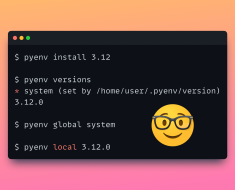A commission of the French National Assembly published an opinion on Thursday (18 January) recommending amending the EU’s Copyright Directive to elaborate an international AI treaty and regular reviews of the EU’s AI Act.
The opinion was the first on artificial intelligence (AI) to come from the National Assembly’s High Commission for Digital and Posts (CNSP) in almost four years. The last opinion, published in June 2020, recommended among other things an EU regulation on artificial intelligence, which was proposed the following year.
“How to identify original works by artists? How to attribute works generated by AI intermediaries? How to remunerate authors whose works have been used? How to manage opt-outs for artists who refuse their content to be used by AI? These are the questions that require a review of the copyright directive in light of generative AI,” Mireille Clapot, the Member of Parliament leading on the opinion and President of the CNSP, told Euractiv.
Although Clapot and her colleagues welcome the AI Act, they believe the Copyright Directive will have to be amended because of the recent technological developments in AI.
Generative AI and copyright
The EU’s Copyright Directive became law in April 2019, three years before the public release of OpenAI’s ChatGPT, which quickly became the world’s most famous chatbot and a household name.
The question of who controls the data fed into these powerful AI models is emerging as one of the key battle lines defining the future of this disruptive technology. In December, The New York Times initiated a landmark lawsuit against OpenAI for copyright infringements.
The French commission acknowledged some protective measures regarding copyrights used by generative AIs, listing transparency opt-out clauses and respecting the EU’s Copyright Directive.
Yet, MPs consider that, in the next legislative mandate, the Copyright Directive should be revamped to “take into account AI generative implications intellectual and industrial properties”, quoting some “legal loopholes” without further details.
The French AI national coordinator, which channels future investments in AI according to the ‘France 2030’ plan while also aligning the strategy between ministries, is currently comprised of representatives from the economy, education, ecology, defence, and health ministries.
To bring copyright considerations into the national AI strategy, French lawmakers suggested that the ministry of culture also become part of the coordinating group.
EU and global positions
Regarding the AI Act, the commission’s opinion briefly details the regulation’s content and the French position at the Council of the EU. No comment is made on the fact that the French government has been the most stringent in its position not to regulate foundation models.
The MPs wrote that the text presented by French Commissioner Thierry Breton after the last political trilogue in December “appeared to have found a balance” before stating that they consider that the AI Act must be revised regularly in order “to take into account the extremely rapid technological developments in this field”.
Looking at the global stage, a recommendation suggests using France’s diplomatic strength to develop an international AI treaty similar to the UN’s Convention on the Law of the Sea.
The Council of Europe’s international treaty on AI initiative is quoted without any reference to the US-led offensive to exempt the private sector from it, which would be contrary to the spirit of the EU’s AI Act.
National challenges
Taking as a reference Israel’s claw-back clauses, which mandate that public money should be refunded to the state should a company be sold to a foreign economic agent, the lawmakers propose implementing such a mechanism for publicly-funded AI startups.
Moreover, it suggests easing financing for early-phase AI startups to reinforce investors’ confidence.
In this investor-friendly vein, the opinion does neither suggest nor discard that the French privacy watchdog, CNIL, become the regulatory authority in charge of AI.
“Some see the CNIL as an institution that hinders development. Therefore, one must be cautious, even symbolically, because even though I have confidence in the expertise of the CNIL, its designation as the national agency in charge of AI could be considered a negative innovation signal,” concludes Clapot.
The opinion also recommends that women are further encouraged to join the AI sector, in line with the EU Digital Decade targets.
[Edited by Luca Bertuzzi/Nathalie Weatherald]






![Progress and Prospects in 3D Generative AI: A Technical Overview including 3D human. (arXiv:2401.02620v1 [cs.AI]) Progress and Prospects in 3D Generative AI: A Technical Overview including 3D human. (arXiv:2401.02620v1 [cs.AI])](https://aigumbo.com/wp-content/uploads/2023/12/arxiv-logo-fb-235x190.png)